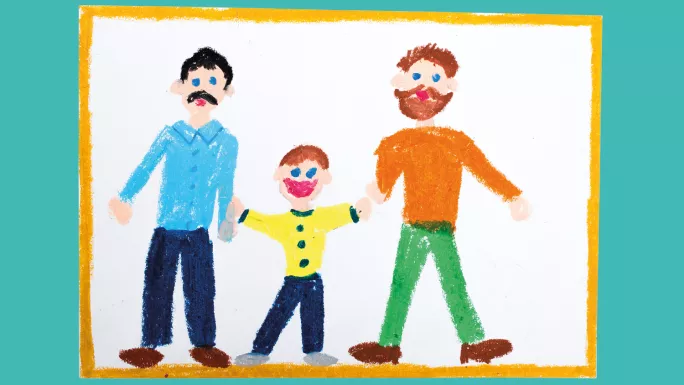- Home
- Getting parents on board is the key to primary SRE
Getting parents on board is the key to primary SRE

As the credits rolled on the sex and relationship DVD that I had just shown to my Year 6 class, one young lady put up her hand and asked me if her mum and dad had “done that” to make her. I told her that they had.
“Urgh!” she exclaimed. “Did they do it to make my brother, too? They actually did it twice? How could they?”
It is reactions like this - and the inevitable questions that will crop up at home as a result - that make some parents balk at the idea of SRE at primary school.
In today’s world, where just about anything can be viewed on any number of platforms and children are exposed to all sorts of things that one would rather they weren’t, it is really important that children not only understand the mechanics of reproduction, but that they also gain some insight into the emotional side of sex and relationships. Being better informed at an early age can help children to cope with what will come their way later on.

Keep families informed
However, convincing parents of this can sometimes be a delicate business. And, in my experience, the only way to make SRE work at primary level is to involve parents as partners in the process.
In the schools that I have worked in, we have delivered SRE in Year 5 and Year 6. Some schools may start to teach the subject earlier, but whenever you start, clear channels of communication with parents are absolutely vital. After all, this is probably the most difficult area of education for many parents to even contemplate discussing with their children. You need to ensure that there are no surprises and that parents know exactly when the school plans to deliver the lessons, what the content will be and what materials you will be using.
Prior to starting a new SRE scheme, it’s a good idea to invite parents to a presentation evening in which you can tell them what will be covered and allow them to view the materials you will be using. Some of the DVDs we had planned to use in the past were aimed at Year 3 and 4, but after watching them, some parents felt that this was too early - and my colleagues agreed.
It is really important to give parents the opportunity to ask questions about SRE, because they will always have them. We emphasise that the crux of our teaching is that sex should be seen as something that occurs in a loving relationship, which tends to reassure most people.
It is also helpful to let parents know exactly who will deliver the session and have this person on hand to talk to them about it. When I was in the classroom, I was very happy to teach SRE, but some teachers feel uncomfortable about it, so lessons were sometimes delivered by our school nurse. Either way, make sure parents know.
Any presentation or question session should also be followed up by a letter home, confirming the details of the programme.

The right to opt out
Of course, even when they are given all the information they could possibly need, parents may still exercise their right to withdraw their child from SRE lessons. Some even decide to do this without attending the presentation and some do so afterwards, although these parents are usually in the minority.
When a parent makes the decision to withdraw their child, it can be for any number of reasons. After hearing what the lessons will cover - including topics such as puberty, feelings for others, wet dreams, same-sex relationships, sexual intercourse and childbirth - parents may decide that they do not want their child to be exposed to all of these topics.
Some may feel that their child isn’t mature enough yet, while others may opt to remove their child from the lessons for cultural or religious reasons. Others still would prefer to talk to their children themselves about it, although most are only too happy to let the school get on with teaching what can be a very difficult subject for them to talk about.
We get parents to confirm their decision in writing and, whatever that decision is, it must be respected. Try to be as sensitive as possible to these parents’ wishes and always make materials available in case they would prefer to view them with their children at home.
In my experience, this hasn’t been a problem. Those children who are not in the lessons have been given other work to do elsewhere in the school. The other children haven’t really worried about who is in the classroom and who isn’t and have been pretty respectful of the situation themselves.
It is important that children are as well-informed as possible, especially as they go on to secondary school, so I would always encourage parents to allow their child to take part in SRE. But, in the end, these are not our children and the decision ultimately must lie with the parents.
Richard Bullard is headteacher at Combe Down Primary School, Bath
Keep reading for just £1 per month
You've reached your limit of free articles this month. Subscribe for £1 per month for three months and get:
- Unlimited access to all Tes magazine content
- Exclusive subscriber-only stories
- Award-winning email newsletters



